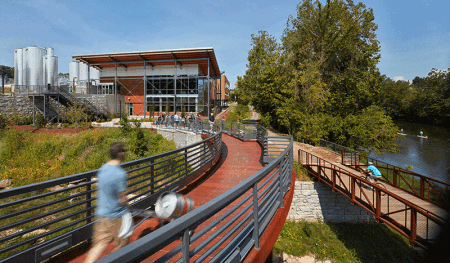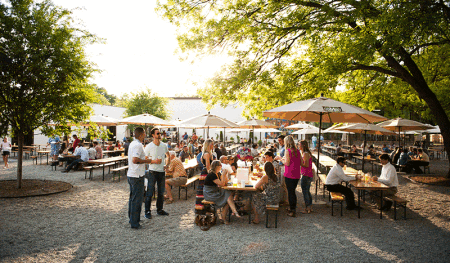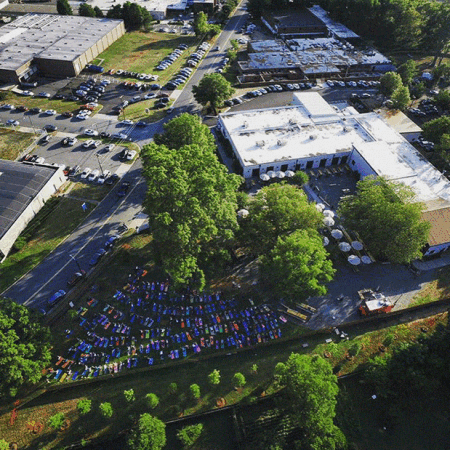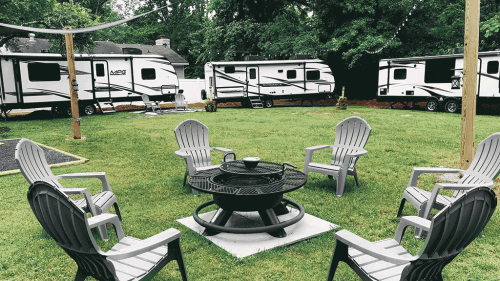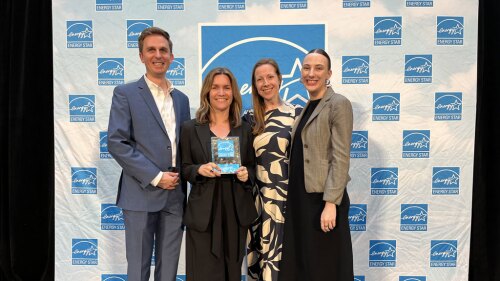Breweries are clearly having their moment on the American urban scene. In 2016, there were 5,300 breweries, compared with 2,400 only four years earlier. In part, that might be due to the novelty and conviviality of enjoying a unique beverage at a hyper-local establishment. But breweries, it turns out, also have an almost magical ability to revitalize neighborhoods and even entire towns, according to panelists speaking at ULI’s 2017 Carolinas Meeting in March, and tend to be a boon wherever they open, at least in the current cycle.
When the Olde Mecklenburg Brewery opened in 2009, Charlotte, North Carolina, was the biggest locality in the United States without its own brewery. Founder John Marrino had a vision: he had spent hours in many a biergarten while living in Germany and wanted to create something similar in Charlotte. “But that takes a lot of land,” said Ryan Self, director of sales for the Olde Mecklenburg Brewery, “and if you find that, you won’t be near much else.”
The brewery initially opened in a nondescript warehouse district in the lower South End neighborhood. “Our hope was to revitalize an area—that we would start and others would follow,” Self explained. The brewery expanded over the years, eventually moving into another building nearby on eight acres (3.2 ha) of land. Business boomed and eventually so did the area, which has become something of an entertainment district. A distillery, a cidery, and another brewery are all within a few blocks, and a new social club is opening this month.
“We take a lot of pride in that,” said Self. “We’ve taken a block of mostly unused buildings and made it vibrant, and the real estate values have gone up quite a bit.”
That has happened all over Charlotte, said Rob Speir, senior vice president for industrial real estate at Colliers International. “Now there are over 40 breweries here, mostly in repurposed and revitalized areas.” It is the same kind of redevelopment that has happened all over the country, in places like Brooklyn, with Brooklyn Brewery, and Durham, North Carolina, with Fullsteam Brewery.
New Belgium Brewing was extremely conscious of that potential when the company began searching for a second location, once distributing to the East Coast from its original Fort Collins, Colorado, site became too onerous. The company had dozens of criteria for its new location and spent three years considering 30 cities across the country.
Always, though, New Belgium knew it wanted to repurpose a site. “We wanted to revive an area with a rich history and create a stimulus for growth,” said Gabe Quesinberry, operations manager for New Belgium Brewing. Eventually, the company settled on Asheville, North Carolina, and found a brownfield site in the western part of the city that had served as an auto junkyard and livestock auction house. The company had the land remediated and opened on May 5 last year. And now, said Quesinberry, “that area is booming. In west Asheville, growth has been tremendous since we broke ground.”
A decade ago, many municipalities would not have welcomed a brewery with open arms—the government of Charlotte did not make life easy on Olde Mecklenburg Brewery’s founders, said Self—but that has long changed. In 2013, Charlotte eased zoning regulations to allow breweries more location flexibility. And many smaller, semirural towns are now looking to breweries to reinvigorate their downtowns, and hopefully their economies.
That is occurring in Rocky Mount, North Carolina, where the town’s cotton mill is being renovated by Capital Broadcasting Company after having been closed for 20 years. The project will include office, retail, and residential space, but the lynchpin is its brewery incubator, which Sebastian Wolfrum, executive brewmaster for Capitol Broadcasting Company, is helping design. Featuring seven brewery spaces—six of which are already leased—the project is partnering with the local community college to provide a brewery education degree and help startup brewers launch their businesses.
“It’s such a sizable project that the whole town now has a different attitude,” said Wolfrum. “It shows how much power this liquid gold has.”
It is possible that some regions might become saturated. Certainly, real estate options for the kind of large spaces that allow for a brewing facility and a taproom have become scarcer in Charlotte, said Speir. “I’ve seen brewery deals with lease rates in the double digits, which is three or four times the rate when Olde Mecklenburg Brewery first leased in 2009,” he said. “If one of my brewery owners goes under, I could lease the space out the next day.”
But the panelists argued that there is still growth ahead for local breweries, though certain business plans are more successful than others. Above all, they agreed, don’t think too small when it comes to space.
“The on-site taproom makes it all function,” said Wolfrum. “It fuels your ability to open and stay open in the early years.” Brewers earn $1,000 to $1,200 per barrel when they sell their beer on site, versus $200 to $350 per barrel when they distribute their beer wholesale.
Self agreed, but added that the benefit of a taproom is not just the immediate dollars. The goal of any craft brewery is to introduce more people to its beer, and a taproom increases the chances that a Budweiser fan might accompany a friend there and order a pint. “One of the smartest things we’ve ever done is put a private space into our brewery,” he said. “People will come for an event, a wedding reception; they’re not necessarily there for the beer, but they’ll try it.”
And that may be all it takes to create another craft beer aficionado.

